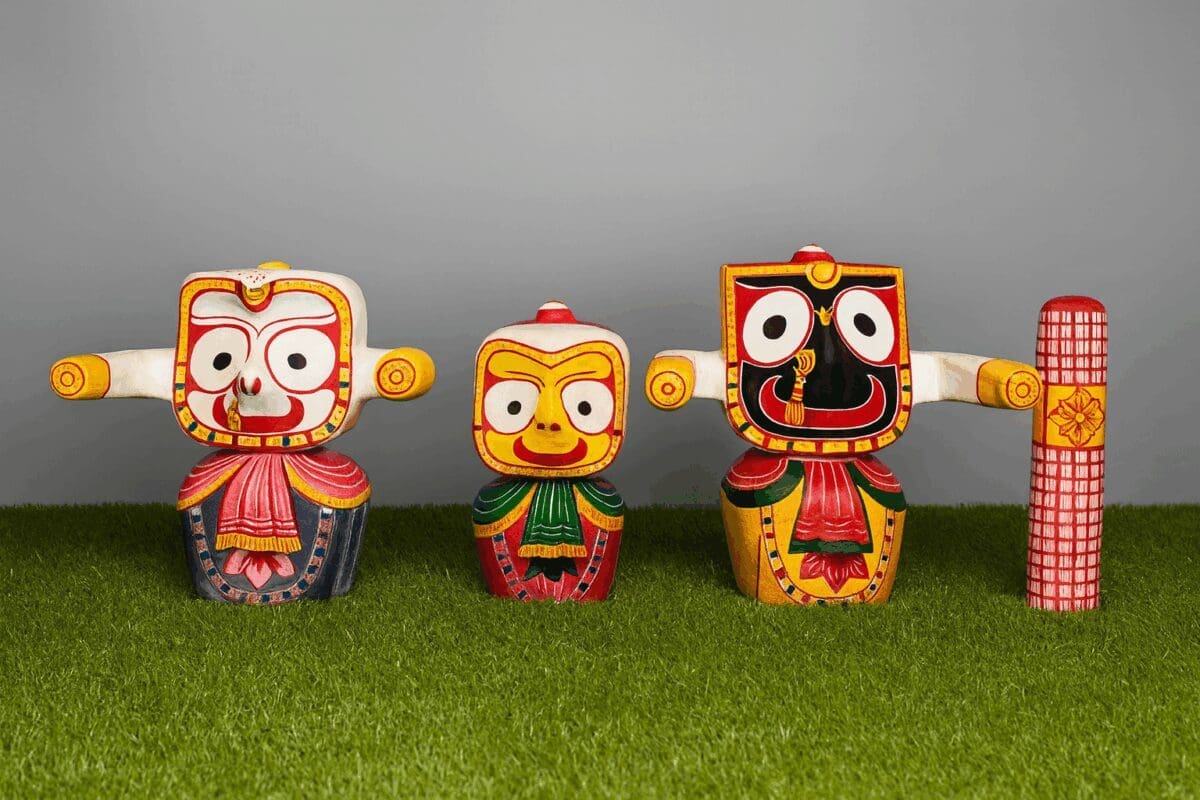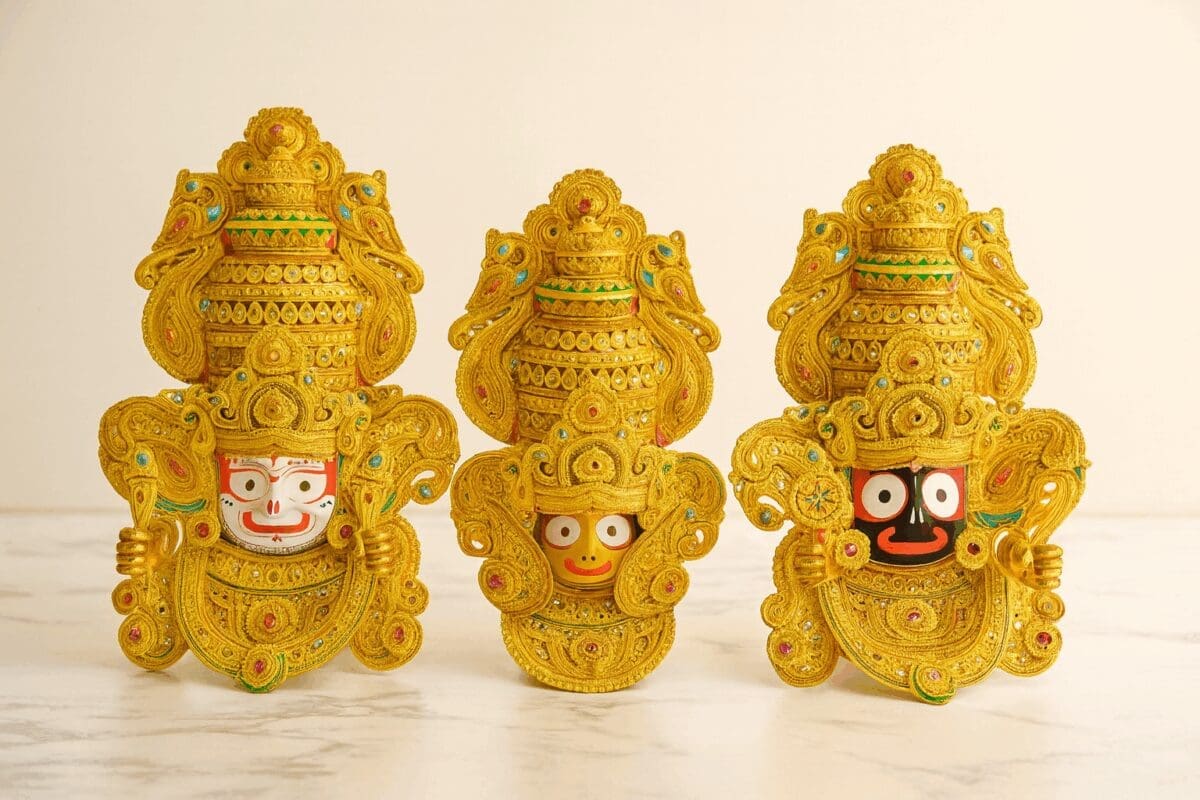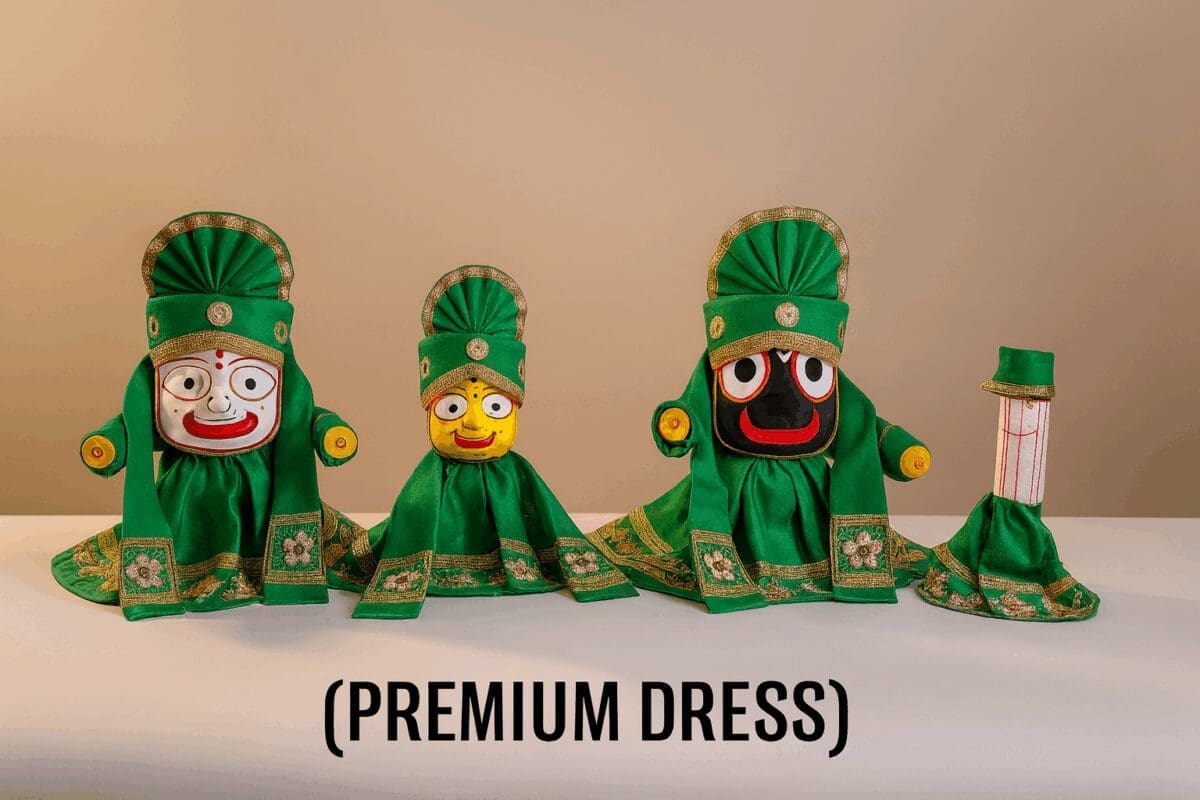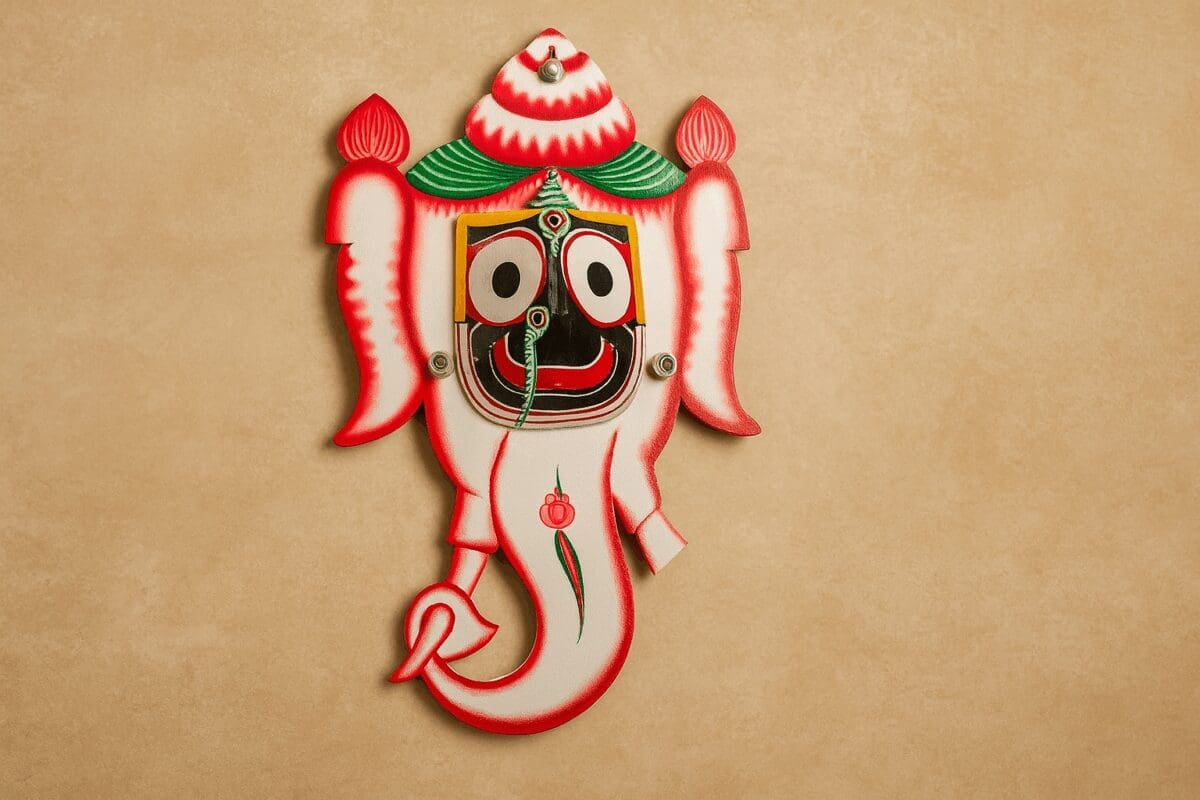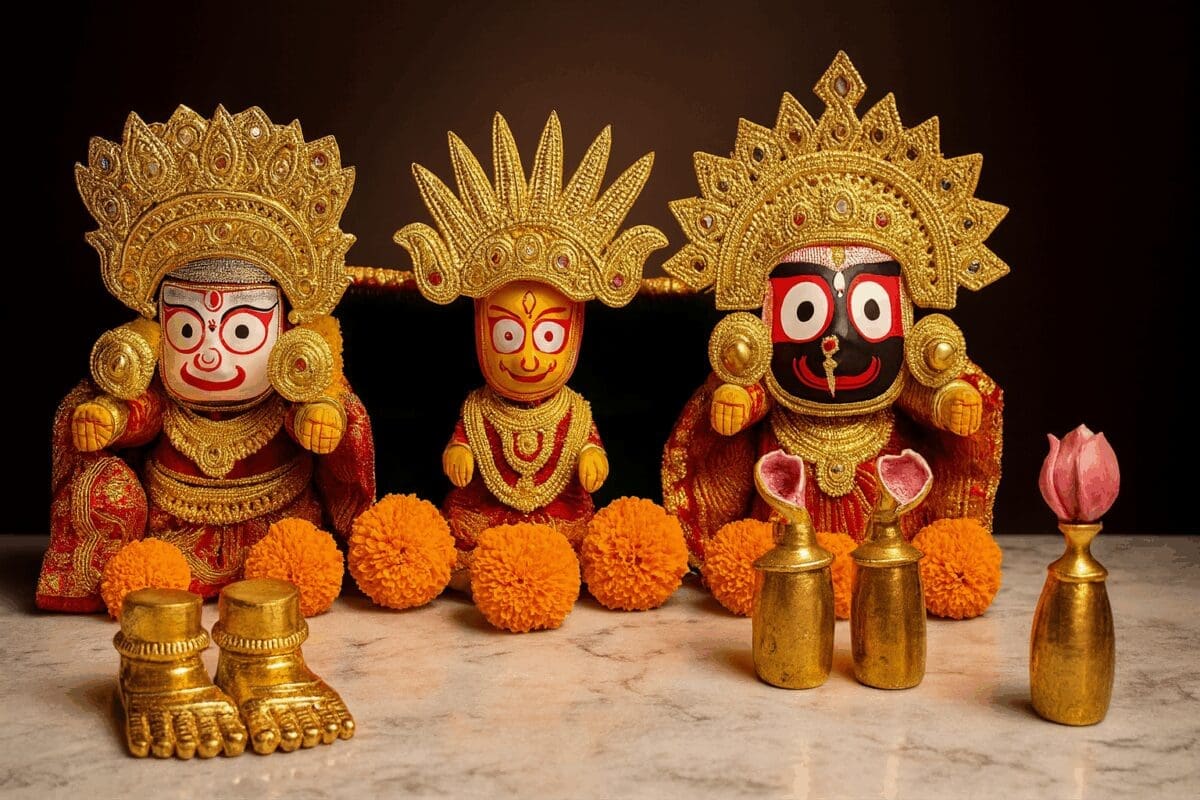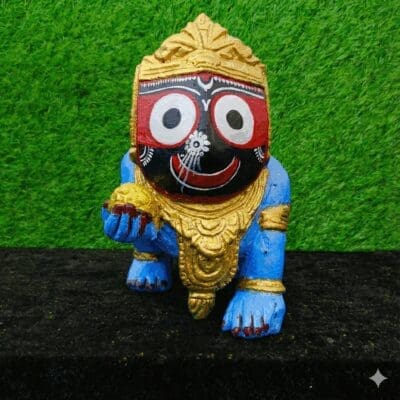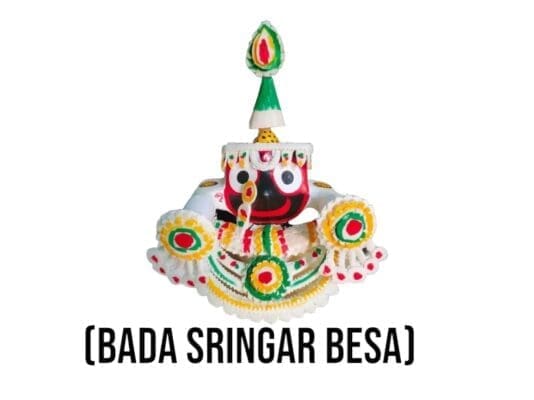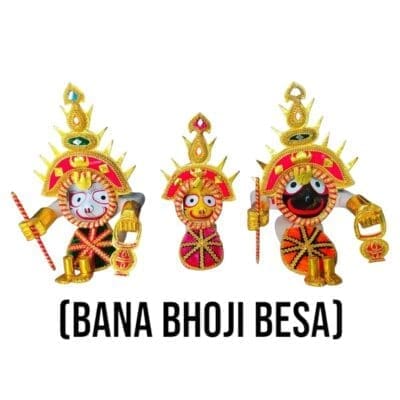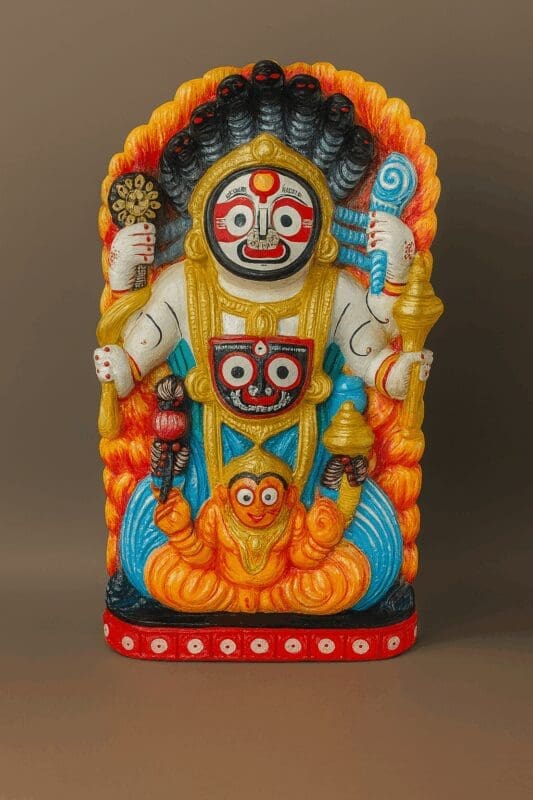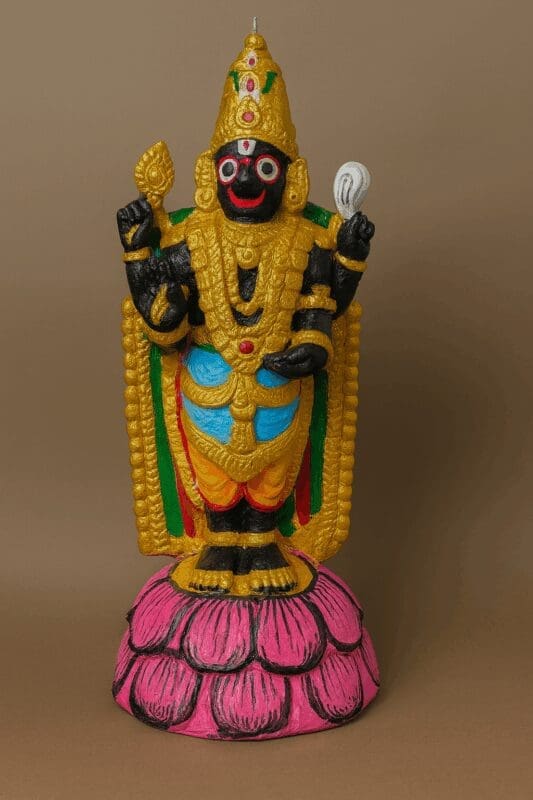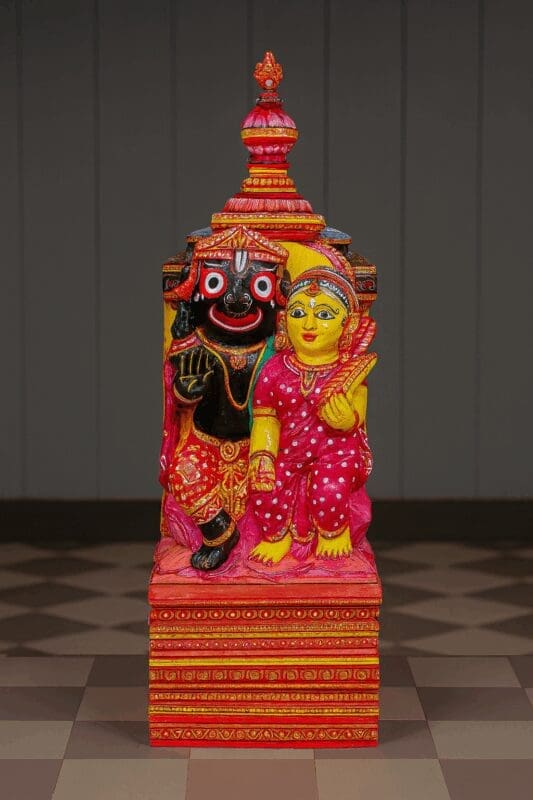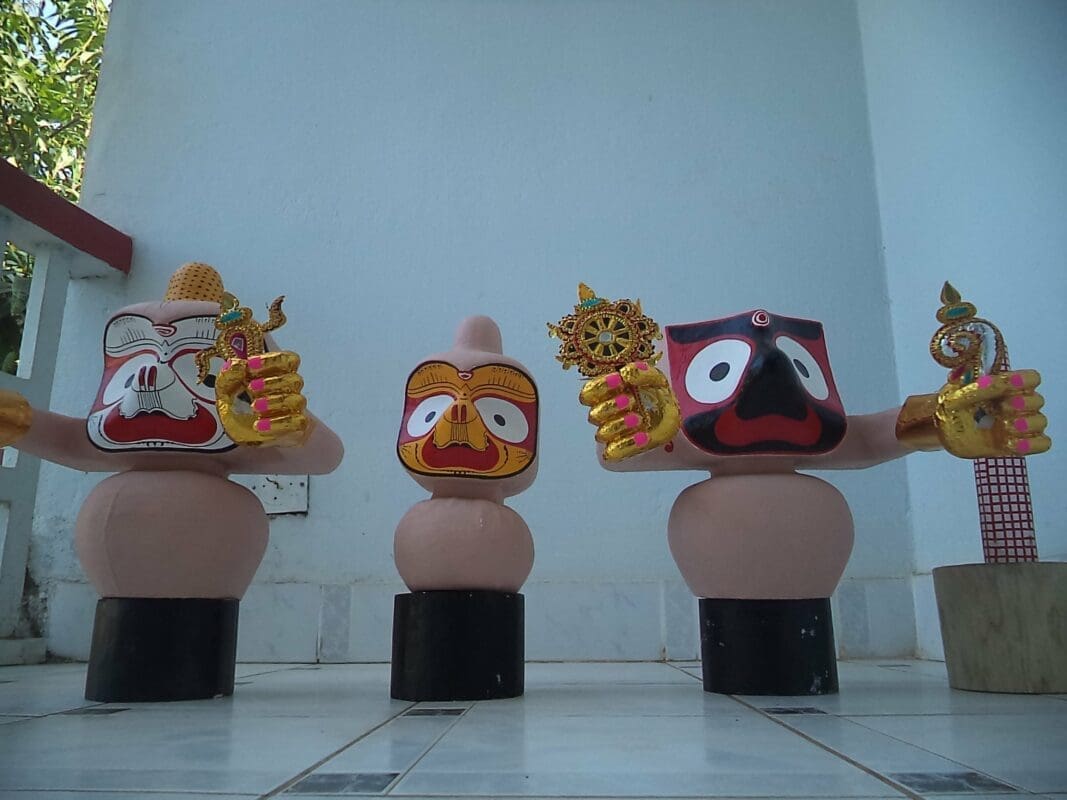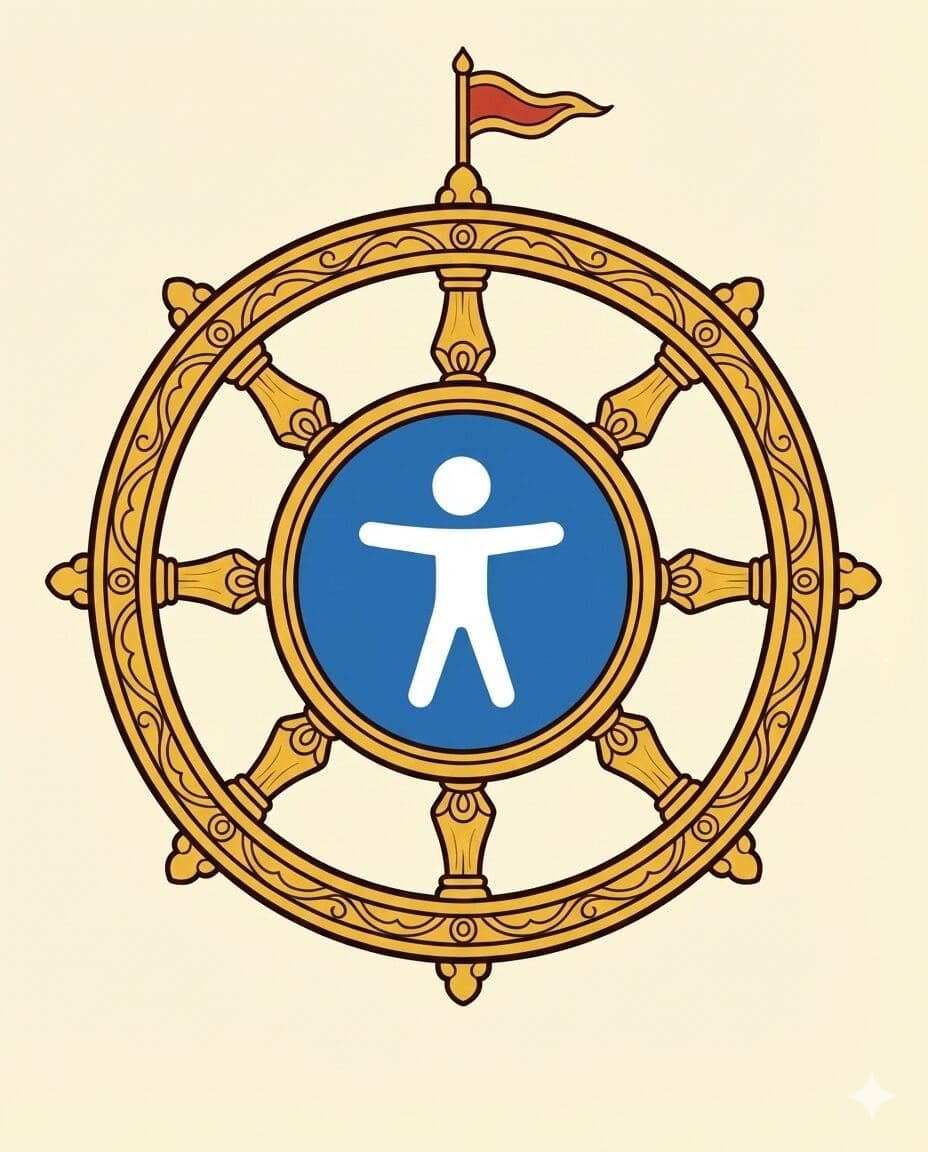All Besha Of Shri Jagannath Mahaprabhu
Om: The Sacred Syllable and Lord Jagannath
OTHER THAN HIM ARE RELATIVELY TRUE….
The sacred syllable “Om,” though absent from the earliest Vedic texts, holds profound significance in later Vedic literature and spiritual traditions. Its origins may lie in the ancient land of Kalinga, the region surrounding present-day Puri, which played a crucial role in shaping early Vedic philosophy.
The Aitareya Brahman identifies “Om” as the sound of heaven and the sun, resolving it into three letters: A, U, and M. These letters correspond to the three states of consciousness—waking, dreaming, and deep sleep—and symbolize the soul (Atman) in its entirety.
Interestingly, “Om” persists in Odia Prakrit, the ancient language of Kalinga, as a simple “O,” used even today as a response when one’s name is called. This suggests that “Om” predates the Vedas and was likely an integral part of the spiritual landscape of Kalinga.
The connection between “Om” and Kalinga deepens when we consider the word “Purusha,” meaning the life principle or soul. This term, also non-Vedic, is believed to have originated in Kalinga, a prominent center of Jainism, where “Purusha” referred to the Jiva (soul). In this context, “Om” can be interpreted as the name of this Purusha, the essence of life itself.
The 16th-century Odia saint Achyutananda Das further elucidates the symbolism of “Om” in his “Sunya Samhita.” He describes “Om” as the life force governing the universe, composed of the five elements: earth, water, fire, air, and ether.
This understanding of “Om” is beautifully woven into the Jagannath cult of Puri. The three letters of “Om” represent the stages of universal creation: “A” signifies the initial pulsation, “U” its gradual expansion, and “M” the final dissolution into silence. These stages are embodied in the four deities of the Jagannath Temple: Jagannath, Balabhadra, Subhadra, and Sudarshan.
Thus, “Om” serves as a powerful link between ancient Kalinga, Vedic philosophy, and the living traditions of the Jagannath Temple. It represents the eternal sound of the universe, the essence of consciousness, and the divine principle that pervades all creation.


